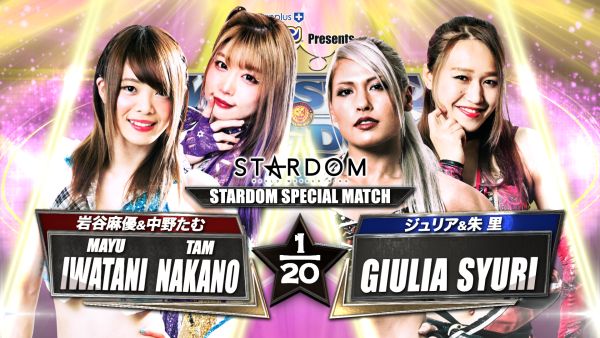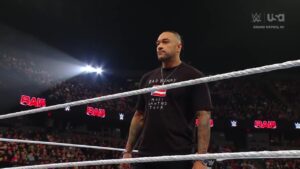2022 marks the 50th anniversary year for New Japan Pro-Wrestling. The milestone anniversary will be commemorated with a 50th anniversary show at Nippon Budokan in Tokyo, Japan on March 1. NJPW can boast that it has been associated with or launched the careers of some of puroresu’s greatest luminaries, like Jushin Thunder Liger, Taka Michinoku, Tiger Mask I, Shinsuke Nakamura, Hiroshi Tanahashi, and Kenny Omega. However, the destiny of one of Japan’s oldest pro wrestling promotions and that of women’s pro wrestling in the country have largely shared separate, parallel fates. That mirrors overall custom in Japan, where women’s wrestling is largely in the confines of the parallel world of joshi. Women in New Japan Pro-Wrestling is a granular topic, to be certain. Let’s take a closer look.
Women in New Japan Pro-Wrestling
Joshi
The world of joshi, women’s wrestling, predates NJPW’s inception. In the 1950s post-WWII era, vaudeville performers and promoters, brothers Noboru Igari and Seijiro Igari promoted early, martial arts-based but largely improvisational female fights at music halls and seedier venues like strip clubs. They later polished the act into Japan’s first women’s wrestling promotion, All Japan Women’s Wrestling Club in 1952. Other promotions followed in its wake, and the early women’s pro wrestling scene in Japan was buoyed by appearances by the U.S.’s top female wrestlers, like Mae Young, Mildred Burke, and The Fabulous Moolah throughout the 50s and 60s.
By the 1970s, the top joshi promotion was All Japan Women’s Pro Wrestling, or AJW, which made household names of its idol-inspired stars Mach Fumiake and The Beauty Pair. As the years wore on, joshi became more groundbreakingly athletic and violent, with the advent of performers like Bull Nakano and Aja Kong. Despite the popularity of joshi and its stars with the Japanese pro wrestling audience, this translated into only limited involvement in NJPW. Cagematch.net records an undercard match featuring joshi performers at NJPW Toukon Memorial Day 30th Anniversary in 2002, for instance, featuring Kaoru Ito and Momoe Nakanishi vs Manami Toyota and Yumiko Hotta.
2002: Joanie “Chyna” Laurer at NJPW
2002 also marks the year that the presence of women in NJPW took a great leap forward. In the throes of his “Inokism” reform period, NJPW maestro Antonio Inoki was shaking up NJPW’s presentation, with an emphasis on MMA that bordered on the obsessive and sparked controversy. After leaving World Wrestling Entertainment, groundbreaking American female pro wrestler Joanie “Chyna” Laurer stepped into the cauldron of radical change and realistic violence that was NJPW’s Inokism period. She departed WWE over contract negotiation disagreements and took with her the special charisma she exuded and the stunning, power-lifting physicality that changed women’s wrestling forever in her wake. During her two month engagement with New Japan Pro-Wrestling, Chyna’s arrival in Japan was met with great enthusiasm from fans and she competed against top male opponents like Masahiro Chono and an up and coming Tanahashi. Just like her time in WWE, then WWF, Chyna was able to meet her male opponents with more than equal strength and aggression.
However, her run was a notable exception, a star cameo. It took thirteen years for another woman, Maria Kanellis, to have a victory in an NJPW match, in a team effort pairing her with Michael Bennett and Matt Taven against Bullet Club affiliates Karl Anderson and Doc and Amber Gallows in 2015.
Bushiroad, Stardom, and NJPW
Joshi pro wrestling continued to grow throughout the early 2000s and 2010s. Although the former powerhouse AJW, as well as other notable promotion GAEA shuttered in 2005, promotions like Ice Ribbon, Gatoh Move Pro Wrestling, Pro Wrestling Diana, Sendai Girls, and World Wonder Ring Stardom rose to fill the vacuum.
Stardom became the sister promotion to NJPW when it was purchased by NJPW’s parent company, Bushiroad, in 2019. On January 4, 2020, Mayu Iwatani, Arisa Hoshiki, Hana Kimura, and Giulia made pro wrestling, NJPW, and women’s wrestling history by facing each other in the first Wrestle Kingdom women’s match. Stardom matches have now become a facet of the Wrestle Kingdom event.
Women in New Japan Pro-Wrestling – In Conclusion
NJPW does not have a women’s division equivalent to that of its western counterparts like WWE. This reflects larger cultural norms in Japan. However, the vibrant world of women’s wrestling in Japan flourished without needing the collaboration or sanction of the larger, all-male promotions. Joshi has its own roots, legends, and stars. With the 2019 purchase of World Wonder Ring Stardom by Bushiroad, the worlds of NJPW and joshi collided, and made further, deeper collaboration between them something to hope for in the future.
Stay tuned to the Last Word on Pro Wrestling for more on this and other stories from around the world of wrestling, as they develop. You can always count on LWOPW to be on top of the major news in the wrestling world, as well as to provide you with analysis, previews, videos, interviews, and editorials on the wrestling world. You can rewatch all 2021 NJPW events and plenty more tremendous wrestling content from New Japan Pro-Wrestling on NJPWWorld.com; The King of Sports Streaming.






